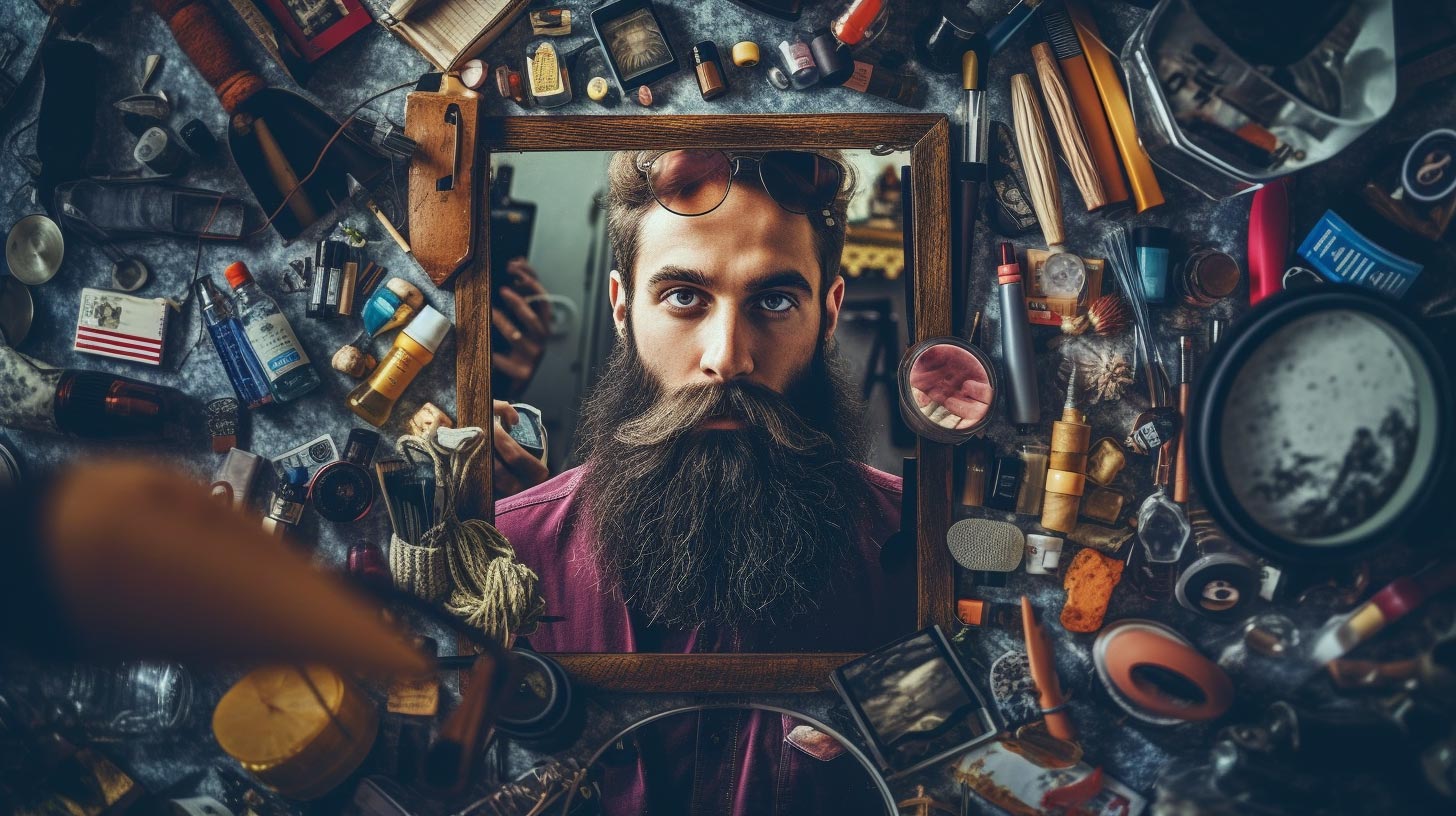Picture this: you’re standing in front of the mirror, admiring your luscious beard, when suddenly you notice a bald patch. Panic sets in as you start frantically searching for an explanation. Was it something you ate? A new beard oil? The truth is, the culprit might be hiding in plain sight – stress and anxiety.
These silent enemies can wreak havoc on your beard, leaving you with patchy, thinning hair. But don’t worry, we’ve got you covered. In this article, we’ll dive deep into the link between stress, anxiety, and beard loss, and provide you with actionable tips to keep your beard healthy and thriving.
As men, we often wear our beards as a badge of honor, a symbol of our masculinity and strength. But what happens when that symbol is threatened? It’s not just about vanity – a healthy beard can also be a sign of overall health and wellbeing.
Stress and anxiety are two of the most common mental health issues facing men today, and they can have a significant impact on our physical health, including our beards. In fact, studies have shown that stress can lead to hair loss, and the beard is no exception.
So, if you’re experiencing beard loss or thinning, it’s time to take a closer look at your mental health. Let’s explore the effects of stress and anxiety on your beard, and what you can do to keep it looking and feeling its best.
Contents
- 1 Causes of Hair Loss
- 2 Effects of Stress and Anxiety
- 3 Tips for Beard Health
- 4 Frequently Asked Questions
- 4.1 How long does it take for a beard to grow back if it falls out due to stress or anxiety?
- 4.2 Can using certain hair products or styling tools contribute to hair loss in the beard area?
- 4.3 Are there any specific vitamins or supplements that can help promote beard growth and health?
- 4.4 What are some common misconceptions about beard care and maintenance?
- 4.5 How can one differentiate between normal beard shedding and excessive hair loss that requires medical attention?
Causes of Hair Loss
You may experience hair loss due to increased stress and anxiety, which are known to be silent enemies of your beard. When you’re stressed, your body releases a hormone called cortisol that can damage your scalp health and hair follicles. This can lead to hair thinning and even baldness in severe cases.
Anxiety can also disrupt your sleep patterns, which can cause a lack of proper hair growth and regeneration. To prevent baldness and maintain healthy hair growth, it’s essential to manage your stress and anxiety levels. Engage in stress-relieving activities like exercise, meditation, or spending time in nature.
Additionally, make sure you’re getting enough sleep and consuming a healthy, balanced diet that includes plenty of vitamins and minerals that promote healthy hair growth. Taking care of your mental and physical health will not only benefit your beard but your overall well-being.
Effects of Stress and Anxiety
Feeling overwhelmed and under pressure can have a significant impact on the health and appearance of your facial hair. Stress and anxiety can cause your hair follicles to weaken, leading to hair loss and thinning of your beard.
When you’re stressed, your body releases a hormone called cortisol, which can disrupt the natural growth cycle of your hair and inhibit the production of new hair cells. However, there are ways to counteract the effects of stress and anxiety on your beard.
Incorporating mindfulness techniques into your daily routine, such as meditation and deep breathing exercises, can help reduce stress levels and promote a healthier, fuller beard. Additionally, regular exercise is an effective way to reduce stress and anxiety, as it releases endorphins that improve mood and reduce cortisol levels.
By taking care of your mental and physical health, you can maintain a strong and healthy beard.
Tips for Beard Health
Incorporating healthy habits into your daily routine can promote a fuller and healthier beard. Beard grooming is essential to maintain a healthy and good-looking beard. Start by washing your beard regularly with a natural shampoo and conditioner. Avoid using harsh chemicals that can dry out your skin and cause breakage. Instead, look for products that contain natural ingredients like coconut oil, jojoba oil, and shea butter to nourish and moisturize your beard.
In addition to regular grooming, natural remedies can also help improve the health of your beard. Essential oils like lavender, peppermint, and eucalyptus can stimulate hair growth and improve the overall condition of your beard. You can also try incorporating a healthy diet that is rich in protein, vitamins, and minerals to provide your beard with the necessary nutrients it needs to grow strong and healthy.
By following these tips, you can ensure that your beard stays healthy and full, even in times of stress and anxiety.
Frequently Asked Questions
How long does it take for a beard to grow back if it falls out due to stress or anxiety?
If your beard falls out due to stress or anxiety, beard recovery time may vary. Stress management techniques, such as hobbies and exercise, can help. It’s important to take care of yourself and your beard to promote healthy growth.
Can using certain hair products or styling tools contribute to hair loss in the beard area?
Yes, certain hair products and styling tools can contribute to hair loss in the beard area. Avoid harmful chemicals and use beard growth remedies like oils and balms. Keep your beard healthy and groomed to prevent thinning.
Are there any specific vitamins or supplements that can help promote beard growth and health?
Looking to promote beard growth and health? Try incorporating supplements and nutrition into your routine. For tips and tricks, consider using biotin, vitamin D, and omega-3 fatty acids. Keep your beard healthy and thriving.
What are some common misconceptions about beard care and maintenance?
Beard myths abound, from the belief that shaving makes hair grow thicker, to the idea that beard oil is unnecessary. Proper grooming tips include regular washing and conditioning, trimming split ends, and using natural oils to keep hair healthy and shiny.
How can one differentiate between normal beard shedding and excessive hair loss that requires medical attention?
If you’re experiencing excessive shedding, it may be due to stress, genetics, or an underlying medical condition. Coping with stress related hair loss may involve lifestyle changes and seeking medical attention if necessary.




